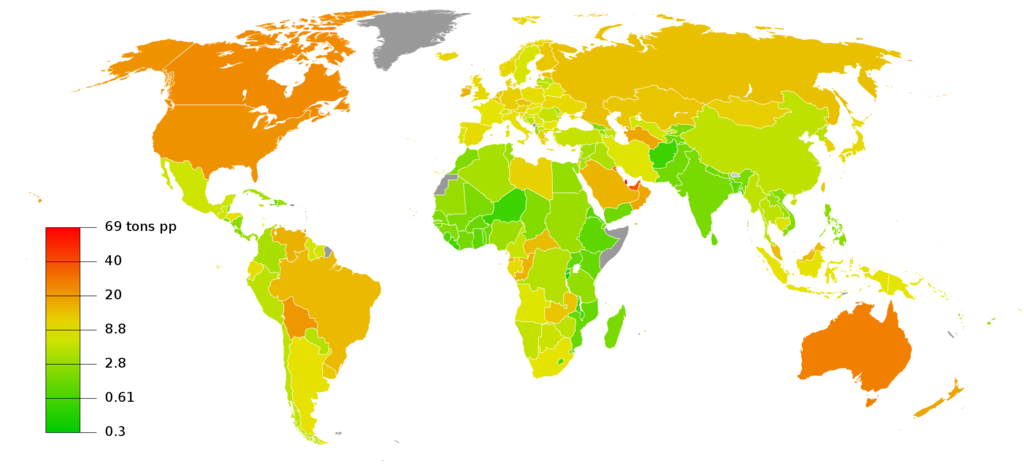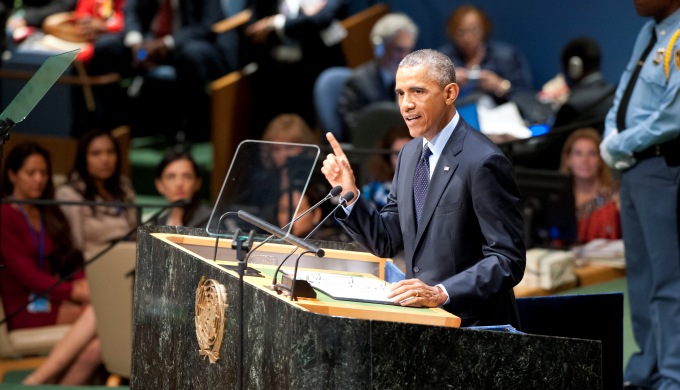santosh10
Senior Member
- Joined
- Oct 5, 2014
- Messages
- 1,666
- Likes
- 177
Western nations 'used bullying tactics' at climate talks
World Development Movement report accuses developed countries of threatening behaviour at climate change summits :ranger:
Leading figures in western governments have been accused of using bullying tactics with developing countries during climate change summits.
The criticisms will cast a shadow over the climate conference in Durban, South Africa, which begins tomorrow, in the latest attempt to stabilise greenhouse gas levels around the world.
A new report, published by the World Development Movement, contains previously unpublished testimonies from insiders at both the Copenhagen and Cancún climate summits in 2009 and 2010. Officials of developing countries complain of divide-and-rule tactics and threats to withhold vital funds unless agreements are signed.
In one section the report criticises threats by richer countries to withdraw funds to help poorer nations cope with climate change if they failed to sign up to the accord. It says: "The US and the UK openly stated that climate finance would be limited to those that signed up to [it]. Ed Miliband, the UK minister, was blunt about linking the funding of developing countries with accepting the accord. The concerns he raised must be duly noted, he said, 'otherwise we won't operationalise the funds'."
The authors add: "The US said they would deny climate finance to Bolivia and Ecuador because they had objected to the Copenhagen accord proposal. The EU's Connie Hedegaard had also suggested that the small island-state countries "could be 'our best allies because they need finance'."
One diplomat from the tiny Polynesian island of Tuvalu said at the time: "Can I suggest that it looks like we are being offered 30 pieces of silver to betray our people and our future? Mr President, our future is not for sale."
It is a standard tactic at UN climate meetings for rich countries to try to divide and rule developing countries' negotiating groups. Developing countries admit they are bamboozled by the tactics and are often unable to keep up with the negotiations.
One diplomat told the report's authors: "At one point in Copenhagen there were 26 meetings taking place simultaneously. How can a developing country delegation of two people possibly hope to cope? These numbers are life and death. There is no intention to agree a fair scenario, whether voluntary or by obligation. It's so clear: we only need your signature here, we have figured out everything, we have designed the role of your country, there is no more time, please sign here now.
"Developed countries sit down and delay, and just repeat inanities, and then they go out and tell the media that the developing countries are blocking the negotiations, and all the world believes it, even developing countries!" :ranger:
Another diplomat said: "There is the small stuff, like travels, scholarships, jobs, but the favours are also small stuff, or so it seems, until the implications come in, especially for developing countries' interests in general. And then there is always the threat to cut off funding for a project, or something, if one gets too aggressive."
In Cancún last year the rich countries created a new system of meetings. "It created confusion, it was so hard to challenge this and to say procedurally this is wrong. Procedures were totally ignored. If this would happen in Fifa the whole world would be scandalised!" WDM was told.
Bolivia felt particularly aggrieved by UN tactics in Cancún, where its representatives lobbied for deeper cuts in emissions than richer countries were prepared to accept.
According to a Bolivian diplomat, their delegation agreed to participate in a side-meeting on condition that no plenary meeting took place at the same time.
The diplomat said: "Three minutes after they left the hall, an official plenary [to adopt the outcomes of the Kyoto protocol] started. It was a deliberate trick! We could only lodge reservations, and run to try and find our senior negotiators and get them back in to the room."
Western nations 'used bullying tactics' at climate talks | Environment | The Guardian
World Development Movement report accuses developed countries of threatening behaviour at climate change summits :ranger:
Leading figures in western governments have been accused of using bullying tactics with developing countries during climate change summits.
The criticisms will cast a shadow over the climate conference in Durban, South Africa, which begins tomorrow, in the latest attempt to stabilise greenhouse gas levels around the world.
A new report, published by the World Development Movement, contains previously unpublished testimonies from insiders at both the Copenhagen and Cancún climate summits in 2009 and 2010. Officials of developing countries complain of divide-and-rule tactics and threats to withhold vital funds unless agreements are signed.

In one section the report criticises threats by richer countries to withdraw funds to help poorer nations cope with climate change if they failed to sign up to the accord. It says: "The US and the UK openly stated that climate finance would be limited to those that signed up to [it]. Ed Miliband, the UK minister, was blunt about linking the funding of developing countries with accepting the accord. The concerns he raised must be duly noted, he said, 'otherwise we won't operationalise the funds'."
The authors add: "The US said they would deny climate finance to Bolivia and Ecuador because they had objected to the Copenhagen accord proposal. The EU's Connie Hedegaard had also suggested that the small island-state countries "could be 'our best allies because they need finance'."
One diplomat from the tiny Polynesian island of Tuvalu said at the time: "Can I suggest that it looks like we are being offered 30 pieces of silver to betray our people and our future? Mr President, our future is not for sale."
It is a standard tactic at UN climate meetings for rich countries to try to divide and rule developing countries' negotiating groups. Developing countries admit they are bamboozled by the tactics and are often unable to keep up with the negotiations.
One diplomat told the report's authors: "At one point in Copenhagen there were 26 meetings taking place simultaneously. How can a developing country delegation of two people possibly hope to cope? These numbers are life and death. There is no intention to agree a fair scenario, whether voluntary or by obligation. It's so clear: we only need your signature here, we have figured out everything, we have designed the role of your country, there is no more time, please sign here now.
"Developed countries sit down and delay, and just repeat inanities, and then they go out and tell the media that the developing countries are blocking the negotiations, and all the world believes it, even developing countries!" :ranger:
Another diplomat said: "There is the small stuff, like travels, scholarships, jobs, but the favours are also small stuff, or so it seems, until the implications come in, especially for developing countries' interests in general. And then there is always the threat to cut off funding for a project, or something, if one gets too aggressive."
In Cancún last year the rich countries created a new system of meetings. "It created confusion, it was so hard to challenge this and to say procedurally this is wrong. Procedures were totally ignored. If this would happen in Fifa the whole world would be scandalised!" WDM was told.
Bolivia felt particularly aggrieved by UN tactics in Cancún, where its representatives lobbied for deeper cuts in emissions than richer countries were prepared to accept.
According to a Bolivian diplomat, their delegation agreed to participate in a side-meeting on condition that no plenary meeting took place at the same time.
The diplomat said: "Three minutes after they left the hall, an official plenary [to adopt the outcomes of the Kyoto protocol] started. It was a deliberate trick! We could only lodge reservations, and run to try and find our senior negotiators and get them back in to the room."
Western nations 'used bullying tactics' at climate talks | Environment | The Guardian





